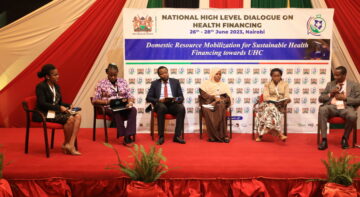News

From 15-19 October, 2018, AFIDEP experts will conduct a training on “policy engagement and evidence uptake” at the Liverpool School of Tropical Medicine (LSTM) for vector control researchers in Liverpool, United Kingdom. This is part of the Partnership for Increasing the Impact of Vector Control (PIIVeC), a collaboration of researchers and policymakers in Malawi, Cameroon, and Burkina Faso, aiming to develop evidence-informed solutions for integrated vector control to protect against vector-borne diseases such as malaria and dengue.
AFIDEP’s Dr Rose Oronje, Director, Science Communications & Evidence Uptake, Ms Violet Murunga, Senior Knowledge Translation Officer, and Ms Claire Jensen, Knowledge Translation Officer, will engage researchers in participatory training sessions involving interactive presentations, group work, case studies, and practical application exercises. The training will cover the foundation of policymaking and evidence uptake, policy analysis, stakeholder mapping, communication strategies, packaging evidence, and monitoring and evaluation for policy influence.
“At AFIDEP, we encourage researchers to avoid the “submarine approach” – doing research without engaging key stakeholders and then re-emerging after the project has ended with academic papers that are not useful or accessible to policymakers and other key stakeholders. Trainings like this one help early career researchers understand their role in ensuring that their research is useful to the right people and groups so that their research has impact on relevant policies and programmes,” says Ms Jensen, one of the AFIDEP training facilitators.
At the end of the training, researchers will have taken concrete steps to develop policy engagement and evidence uptake strategies for their research projects and for the country and regional research programmes. After the training, AFIDEP will provide support and mentorship to PIIVeC researchers as they finalise and implement their policy engagement strategies over the course of their research.
Dr Eve Worrall, Health Economist and Senior Programme Manager, at the LSTM says, “this training is critical for the PIIVeC Fellows. We hope it will enable them to appreciate the links between research and policy. The skills they gain will equip them to conduct research into vector-borne disease and ensure that this research has an impact on policy and implementation. We are developing future African research leaders and the AFIDEP training provides a solid foundation for that.”
AFIDEP’s work on PIIVeC aims to strengthen capacity for PIIVeC researchers to engage in policymaking spaces, with particular focus on 10 postdoctoral research fellows from Malawi, Cameroon, and Burkina Faso. Overall, the hope is that policymakers and other key decision-makers will be interested in PIIVeC research from the early stages of the projects so that when evidence is produced, it is used in policy and practice.
Related Posts





